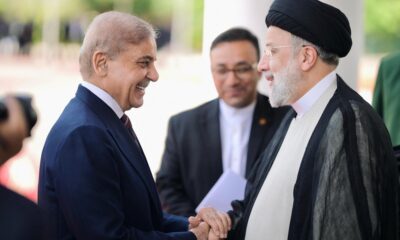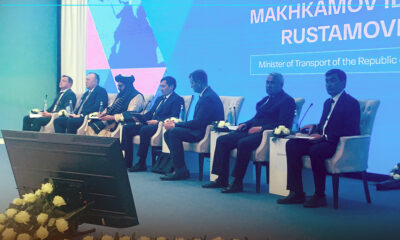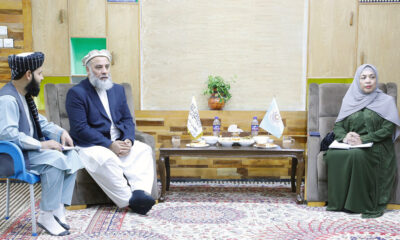Business
Afghans using crypto to ‘safeguard’ their savings

Afghans are reportedly acquiring digital assets that they use to preserve their savings and to lessen the chance of having their money seized by the new authorities, Bloomberg reported this week.
According to Bloomberg, the demand for digital currencies in Afghanistan has surged as some Afghans look to buy stablecoins like tether because they are pegged to the U.S dollar.
The report quotes one 26-year-old Afghan resident, Habibullah Timori, as saying they the demand for cryptocurrencies is high.
“During other crises, people stored their cash and jewellery in the ground or under their pillows. This time, they’ve decided to keep it buried in crypto,” he said.
The report also cites another 26-year-old Afghan, Naser Ali, who claims to have converted $30,000 stashed in his safe to USDT.
Ali said he regrets not having known about cryptocurrencies sooner, Bloomberg reported.
Despite the surging demand for cryptocurrencies, exchanges like Maihan say the U.S. sanctions on Afghanistan are making it difficult for residents to buy digital currencies. Further, residents buying from local crypto exchanges are charged a commission of 1.5% for every crypto transaction.
Business
Azizi calls on Malaysian investors to invest in Afghanistan
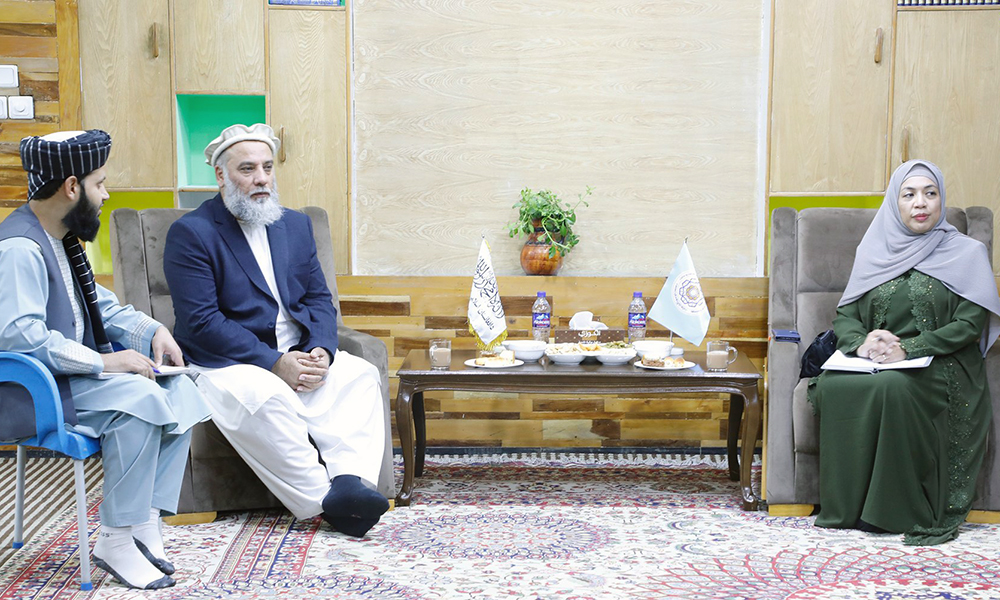
Nooruddin Azizi, Acting Minister of Commerce and Industry, met with representatives from the ministries of foreign affairs, defense and interior of Malaysia, along with other senior officials, on Wednesday and called on Malaysians to invest in Afghanistan.
The visiting delegation is being led by senior diplomat Dr. Shazelina Zainul Abidin.
According to the IEA’s foreign ministry, the two sides discussed bilateral trade, holding a business communication conference to strengthen trade relations between the two countries, the trade balance between Afghanistan and Malaysia, and creating a market for Afghan products, including carpets, cotton, and minerals.
According to the ministry, at the end of the meeting, the Acting Minister emphasized the increase of investment from regional countries in Afghanistan and called on Malaysian investors to also invest in Afghanistan.
Business
Afghanistan starts exporting via railway to Turkey

The Ministry of Interior says that Afghanistan has started exporting goods to Turkey via the Herat-Khaf railway line.
In a post on X, the ministry said: “Afghanistan’s exports to Turkey started in a calm atmosphere through the Herat-Khaf railway line.”
The ministry added that one train will run daily for a month and then two trains will run daily.
According to the ministry, the security of Khaf-Herat railway line is provided by the guards of the National Public Protection Agency.
Khaf-Herat railway project not only connects Iran and Afghanistan by rail, but also completes a 2,000-kilometer route along the east-west rail corridor from China, through Uzbekistan, to Afghanistan, to Iran, and on to Turkey and Europe.
As a landlocked country, this railway network will provide a safe route to connect with Europe via Iran’s railway network and Iran’s southern ports.
This railway line is strategic for trade between Iran and Afghanistan and will allow six million tons of goods to be sent between the two countries.
Business
Afghanistan, Kazakhstan to hold joint expo in Kabul
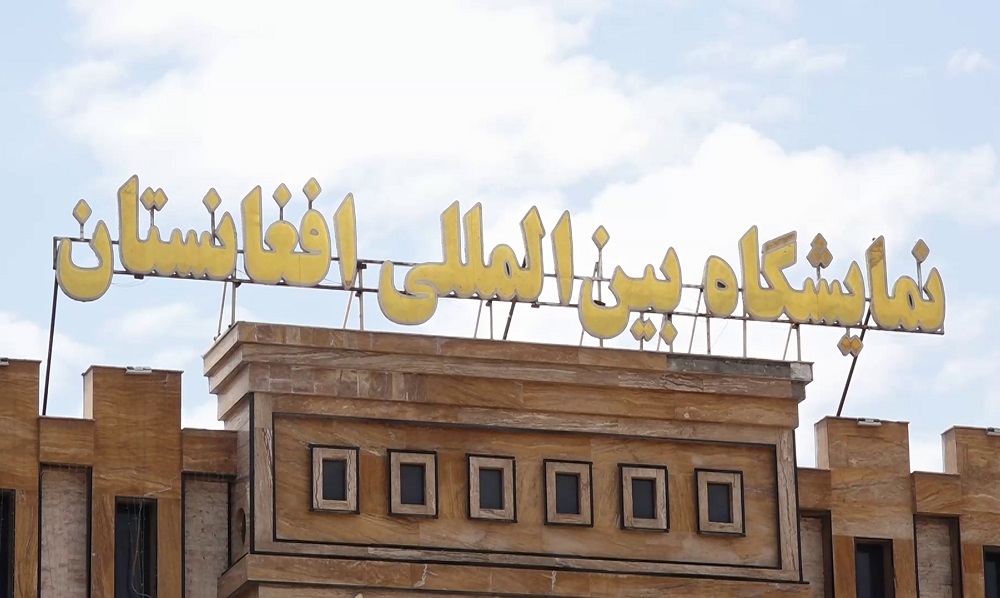
A joint expo between Afghanistan and Kazakhstan will be held in Kabul in the next four days, officials said on Sunday.
Officials of the Ministry of Industry and Commerce said that the two-day expo will be held for the purpose of expanding and strengthening trade relations between the two countries.
“This expo will be held as a follow-up of the Kazakh-Afghan international expo, which was held in the city of Astana, Kazakhstan, with the participation of a large delegation of the government and the private sector of the Islamic Emirate of Afghanistan,” Abdulsalam Javad Akhundzadeh, the spokesman of the Ministry of Industry and Commerce, said.
“At this expo, domestic products from different sectors of Afghanistan and the Republic of Kazakhstan will be put on display for two days.”
According to officials, 40 large Kazakh companies, and 40 large Afghan companies will exhibit their products.
Mohammad Saber Latifi, head of the Afghanistan International Expo Center, said that fruits, minerals and commercial services will be displayed at the expo.
During the expo, various memorandums of understanding for the trade of goods are also expected to be signed by companies.
-

 Sport5 days ago
Sport5 days agoAfghanistan Champions League kicks off with grand opening ceremony
-

 Regional5 days ago
Regional5 days agoIran’s foreign minister downplays drone attack, says Tehran investigating
-

 Latest News4 days ago
Latest News4 days agoPakistan’s frontiers minister stresses ‘dignified’ return of Afghan refugees
-

 Business5 days ago
Business5 days agoAfghanistan’s economic prospects are bleak: World Bank
-

 Latest News5 days ago
Latest News5 days agoMore than 800 Afghan refugees deported from Pakistan in two days
-

 Regional3 days ago
Regional3 days agoIranian president lands in Pakistan for three-day visit to mend ties
-

 Climate Change4 days ago
Climate Change4 days agoMassive river flooding expected in China, threatening millions
-

 Latest News4 days ago
Latest News4 days agoChinese keen to invest in Panjshir-Kabul water conduit project


